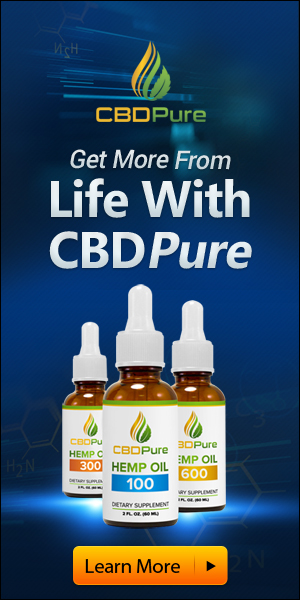CBD oil for athletes is gaining recognition for its potential to aid recovery, reduce inflammation, and manage pain. This article can discuss how CBD oil for athletes may benefit professionals and or amateur athletes and explore its legality and use in sports.
This article addresses common concerns and misconceptions about safety and legality in CBD oil. It can explain the difference between CBD and THC, the legal status of CBD oil in various countries, and any potential side effects or precautions associated with its use.
CBD (cannabidiol) oil has gained popularity among athletes as a potential aid in enhancing recovery and performance. While research on CBD’s effects, specifically on athletes, is limited, some evidence suggests potential benefits. It’s important to note that it’s always advisable to consult a healthcare provider before starting any new supplement or treatment.
-
Pain and inflammation reduction:
CBD is believed to have analgesic and anti-inflammatory properties. Athletes may use CBD oil to manage exercise-induced pain, muscle soreness, and inflammation, potentially allowing them to recover more quickly and return to training.
-
Sleep support:
Quality sleep is crucial for athletes’ recovery and performance. Some users have reported CBD to promote better sleep by reducing anxiety and improving sleep quality. However, individual experiences may vary.
-
Stress and anxiety management:
The competitive nature of sports can lead to high stress and anxiety levels. CBD may help reduce stress and anxiety by interacting with receptors in the brain associated with these conditions, potentially promoting a calmer state of mind.
-
Neuroprotection:
Some studies suggest CBD may have neuroprotective properties, benefiting athletes participating in contact sports or high-impact activities that risk head injuries.
-
Anti-doping considerations:
CBD oil for athletes should be cautious when using CBD products because some formulations may contain trace amounts of THC (tetrahydrocannabinol), the psychoactive compound found in cannabis. While major sports organizations do not ban CBD, THC is prohibited in most sports competitions. Athletes should ensure they use CBD products that are THC-free and third-party tested to avoid any inadvertent doping violations.
It’s worth mentioning that CBD’s effects can vary among individuals, and dosage, product quality, and administration methods can also influence its efficacy. Athletes considering CBD oil should choose reputable brands, review product labels, and consult a healthcare professional who can provide personalized advice based on their specific needs and any medications they may be taking.
While some athletes report positive experiences with CBD oil for recovery and performance, more rigorous scientific research is needed to fully understand its potential benefits, optimal dosages, and long-term effects on athletes.
CBD Oil: Is It Safe and Legal? What You Need to Know
CBD (cannabidiol) oil’s safety and legal status can vary depending on several factors, including its source and the specific jurisdiction’s laws.
Here’s what you need to know:
Safety:
-
Side effects:
Generally, CBD is considered safe for most people. However, some individuals may experience mild side effects such as dry mouth, drowsiness, diarrhea, or changes in appetite. It’s important to start with a low dose and monitor your body’s response. If you experience any adverse effects, you should discontinue use and consult with a healthcare professional.
-
Drug interactions:
CBD can potentially interact with certain medications, particularly those metabolized by the liver’s cytochrome P450 enzyme system. This interaction can alter the effectiveness or side effects of the medications. If you’re taking any medications, it’s crucial to consult with a healthcare professional before using CBD to avoid potential interactions.
-
Product quality:
Choosing high-quality CBD products from reputable manufacturers is essential. Look for products that have undergone third-party testing to ensure accurate labeling and the absence of contaminants such as pesticides, heavy metals, and residual solvents.
Legal Status:
-
United States:
The legal status of CBD in the United States is complex. The 2018 Farm Bill legalized hemp-derived CBD products containing less than 0.3% THC (tetrahydrocannabinol) at the federal level. However, individual states have the authority to enact their laws regarding CBD, which can sometimes conflict with federal regulations. It’s important to familiarize yourself with the specific laws of your state.
-
International:
CBD laws vary widely across countries. Some countries have legalized CBD with certain restrictions, while others have stricter regulations or outright bans. If you plan to travel internationally with CBD oil or use it in a different country, it’s crucial to research and comply with local laws and regulations.
CBD oil for athletes is generally considered safe for most, but side effects and drug interactions may occur. It’s crucial to consult with a healthcare professional if you have any underlying health conditions or are taking medications. Additionally, the legal status of CBD varies by country and sometimes within different regions, so it’s important to be aware of the laws governing CBD in your specific jurisdiction.

Common Concerns and Misconceptions about CBD oil’s Safety and Legality.
There are several common concerns and misconceptions surrounding the safety and legality of CBD oil. Here are a few:
1. CBD gets you high:
One of the most common misconceptions is that CBD oil can get you high. CBD is non-psychoactive, meaning it does not produce the intoxicating effects associated with THC, the psychoactive compound found in cannabis. CBD products derived from hemp contain only trace amounts of THC (less than 0.3%), which is insufficient to cause a high.
2. CBD is addictive:
CBD is generally considered non-addictive and does not produce the euphoric effects of addictive substances. The World Health Organization (WHO) has stated that CBD exhibits no potential for abuse or dependence.
3. CBD is the same as medical marijuana:
While CBD can be derived from hemp and marijuana plants, they differ. Hemp-derived CBD contains negligible amounts of THC and is legal under certain conditions, as explained earlier. Medical marijuana, on the other hand, typically contains higher levels of THC and is subject to different legal regulations.
4. CBD is not regulated:
While it’s true that the regulation of CBD products is still evolving, reputable manufacturers prioritize quality control and adhere to industry standards. Third-party testing is often conducted to ensure accurate labeling, product purity, and absence of contaminants. Consumers should look for CBD products from reputable brands that provide transparency and detailed information about their manufacturing processes.
5. CBD is illegal everywhere:
CBD’s legality varies from country to country and even within different regions of the same country. As mentioned, the 2018 Farm Bill legalized hemp-derived CBD products with low THC content (less than 0.3%) in the United States. However, it’s important to stay updated on your jurisdiction’s specific laws and regulations.
6. CBD is a miracle cure:
While CBD has shown promise in some areas, such as epilepsy treatment, pain management, and anxiety reduction, it is not a magical cure-all. CBD should not be considered a substitute for professional medical advice or prescribed medications. Its effects can vary among individuals, and more scientific research is needed to fully understand its potential benefits and limitations.
It’s important to approach CBD with an informed mindset, rely on reputable sources of information, and consult with healthcare professionals when necessary.
Potential Side Effects or Precautions Associated with its Use
While CBD (cannabidiol) is generally considered safe for most people, there are potential side effects and precautions to be aware of:
1. Side effects:
- Dry mouth: CBD can temporarily reduce saliva production, leading to a dry sensation in the mouth.
- Drowsiness and fatigue: CBD may cause drowsiness, especially at higher doses or when combined with other sedating substances.
- Diarrhea and gastrointestinal issues: Some individuals may experience digestive disturbances such as diarrhea, nausea, or changes in appetite.
- Changes in liver enzyme levels: In some cases, CBD can cause mild elevations in liver enzyme levels. However, these instances are rare and often occur when CBD is taken in high doses or interacts with certain medications.
2. Drug interactions:
- CBD can interact with certain medications, specifically those metabolized by the liver’s cytochrome P450 enzyme system. This interaction can alter how medications are processed and may increase or decrease medication levels in the bloodstream. It’s important to consult with a healthcare professional before using CBD if you take any medications, particularly medications with a “grapefruit warning” or specific precautions about interactions.
3. Quality and regulation:
- The CBD industry is not yet fully regulated, so product quality can vary. Choosing CBD products from reputable manufacturers that undergo third-party testing is important to ensure accurate labeling, purity, and the absence of contaminants such as pesticides, heavy metals, and residual solvents.
4. Individual sensitivity:
- People may react differently to CBD due to variations in their body chemistry and individual sensitivity. It’s advisable to start with a low dose and gradually increase it as needed while monitoring how your body responds.
5. Pregnancy and breastfeeding:
- There is limited research on the effects of CBD use during pregnancy and while breastfeeding. As a precautionary measure, it’s generally recommended to avoid CBD products during these periods to ensure the safety of the mother and child.
It’s important to note that the information provided here is not exhaustive, and individual experiences with CBD oil for athletes may vary. If you have any concerns or pre-existing health conditions, it’s always recommended to consult with a healthcare professional before using CBD or any other supplement.




